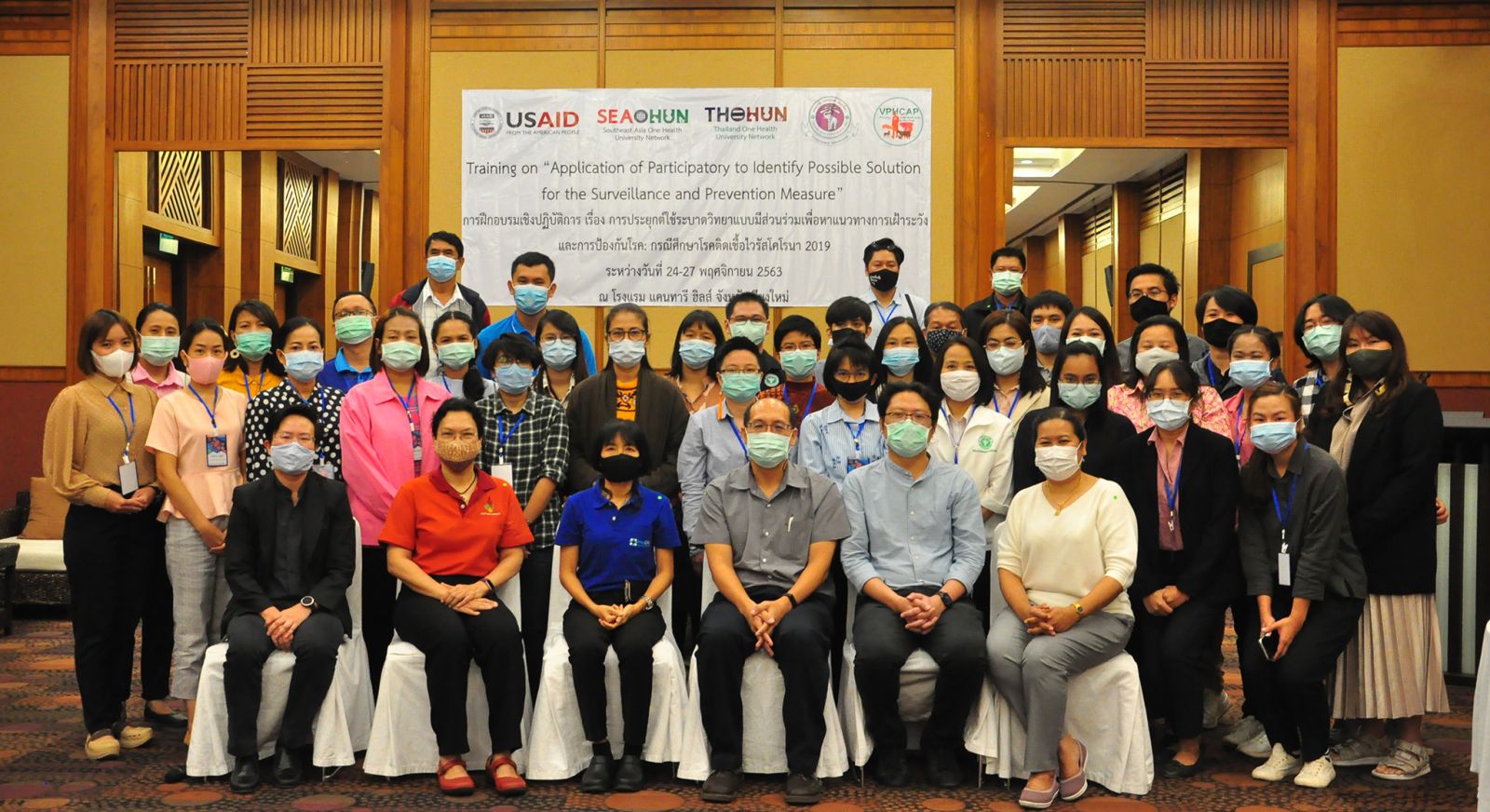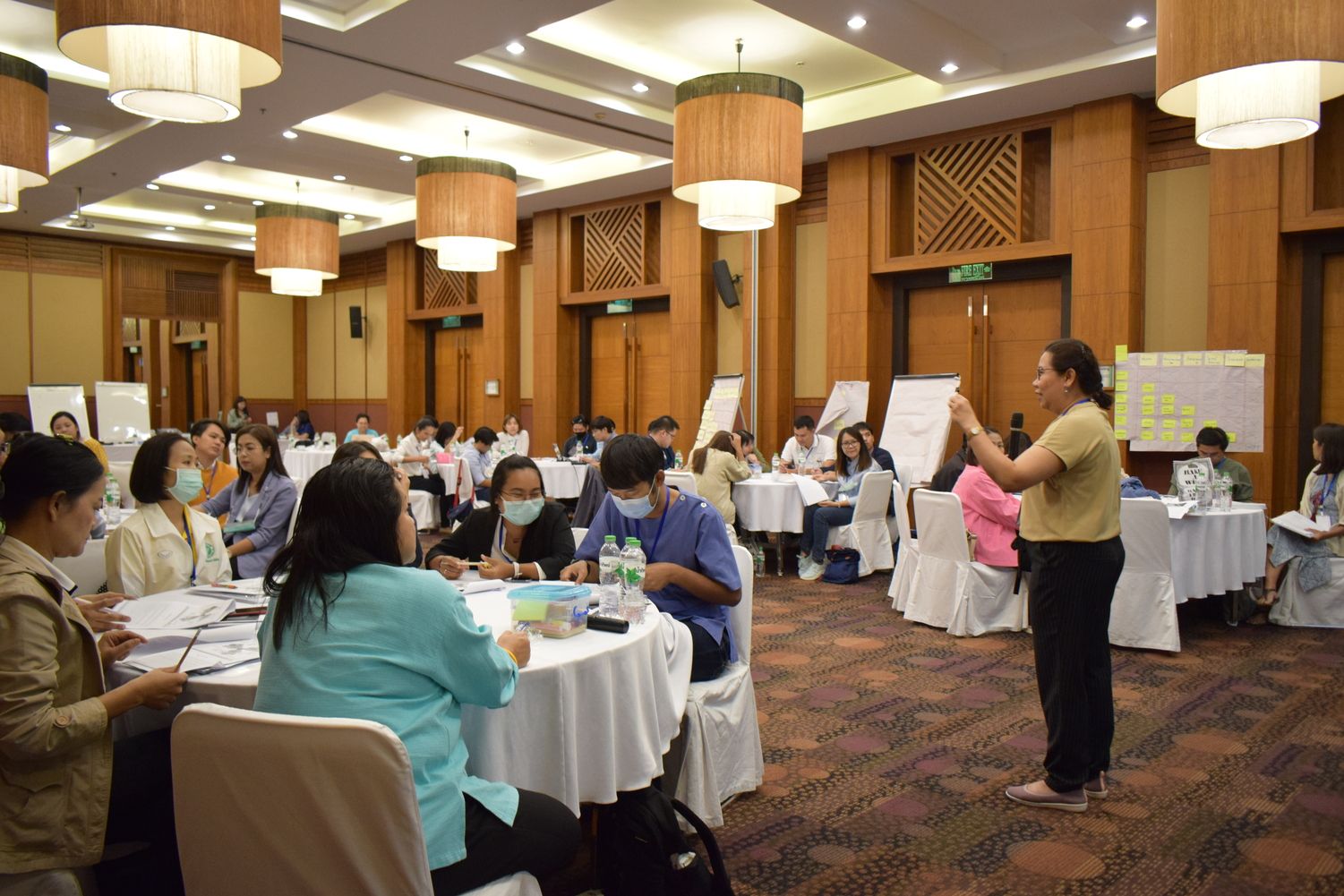
The current situation of contagious disease outbreaks has become increasingly severe and frequent, including both emerging and re-emerging infectious diseases. In particular, the coronavirus disease 2019 (COVID-19), which emerged in Thailand and worldwide, continues to escalate and spread to many regions, creating significant public health, social, and economic impacts. Addressing these challenges requires strong support and cooperation among all sectors, including governments, multilateral organizations, NGOs, and local communities.
To respond to this need, the Veterinary Public Health and Food Safety Centre for Asia Pacific (VPHCAP), Faculty of Veterinary Medicine, Chiang Mai University, organized the training workshop “Application of Participatory Epidemiology to Identify Possible Solutions for Surveillance and Prevention Measures: COVID-19 as a Case Study.” The workshop aimed to introduce participatory tools to practitioners across professions, enabling them to gather essential information from communities and identify feasible solutions during and after the COVID-19 outbreak.

Objectives of the Training
-
To build knowledge and skills in participatory epidemiology for practitioners working in public health and animal health.
-
To exchange knowledge and experiences in developing surveillance and prevention systems for emerging diseases, with a focus on COVID-19.
-
To establish a network of participatory epidemiology practitioners.
Program Overview
The workshop was supported by USAID and attended by 50 participants from public health and veterinary public health sectors in Thailand.